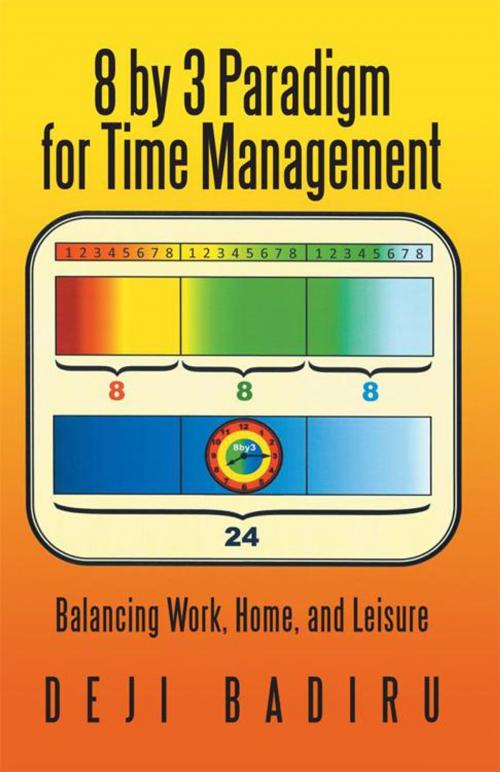8 by 3 Paradigm for Time Management
Balancing Work, Home, and Leisure
Nonfiction, Reference & Language, Reference, Guides & Handbooks, Health & Well Being, Self Help, Self Improvement| Author: | Deji Badiru | ISBN: | 9781475984781 |
| Publisher: | iUniverse | Publication: | May 3, 2013 |
| Imprint: | iUniverse | Language: | English |
| Author: | Deji Badiru |
| ISBN: | 9781475984781 |
| Publisher: | iUniverse |
| Publication: | May 3, 2013 |
| Imprint: | iUniverse |
| Language: | English |
The overarching theme of 8by3 paradigm of time management is to view time as the basis for everything we do. An efficient use of time is the foundation for success in all endeavors. Balancing time implies using explicit and equitable allotments of time to the various undertakings of each day. The development of the paradigm introduced in this book is based on the authors own personal practice of the approach for over three decades that have resulted in his ability to manage multiple endeavors. The approach has been honed enough to the point that it can be shared with others who may want to adopt and adapt it for their own activities. The paradigm presents a simple guide to managing the hours of the day over three major blocks of time allocated to the three typical categories of human undertakings. The three blocks of time cover work activities, home activities, and leisure activities. Each block has sub-blocks that are managed in contiguous hierarchical timeline templates. The 8by3 paradigm can be customized for each persons specific needs and circumstances. This book does not ask readers to sacrifice one time block for another or vice versa. Rather, it encourages balancing time across the work time, the home time, and leisure time.
The overarching theme of 8by3 paradigm of time management is to view time as the basis for everything we do. An efficient use of time is the foundation for success in all endeavors. Balancing time implies using explicit and equitable allotments of time to the various undertakings of each day. The development of the paradigm introduced in this book is based on the authors own personal practice of the approach for over three decades that have resulted in his ability to manage multiple endeavors. The approach has been honed enough to the point that it can be shared with others who may want to adopt and adapt it for their own activities. The paradigm presents a simple guide to managing the hours of the day over three major blocks of time allocated to the three typical categories of human undertakings. The three blocks of time cover work activities, home activities, and leisure activities. Each block has sub-blocks that are managed in contiguous hierarchical timeline templates. The 8by3 paradigm can be customized for each persons specific needs and circumstances. This book does not ask readers to sacrifice one time block for another or vice versa. Rather, it encourages balancing time across the work time, the home time, and leisure time.















